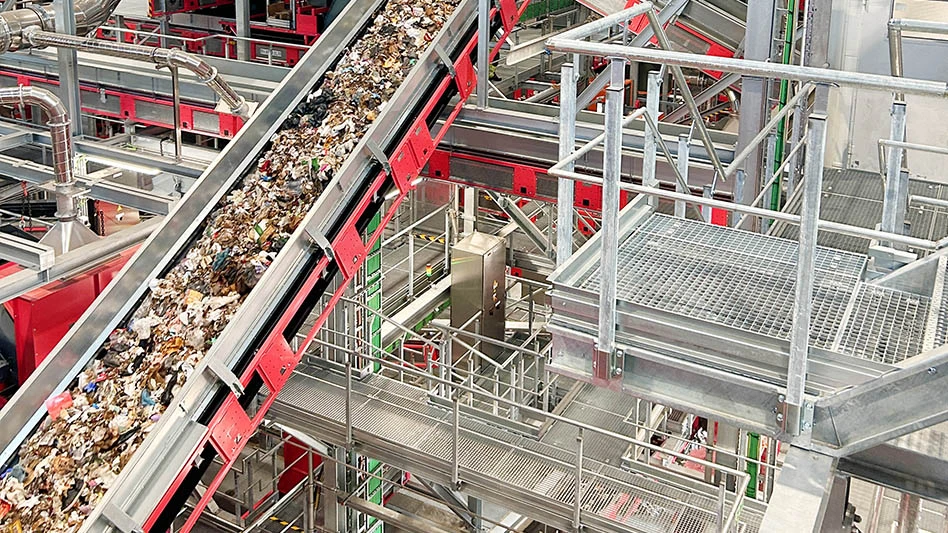
Photo courtesy of Denali
Beginning Jan. 1, 2024, the city of Ann Arbor, Michigan, and Denali, the city’s compost site operator, will only accept manufactured compostable products made of fiber for processing.
“The Compost Manufacturer’s Alliance [CMA] now offers a variety of certifications to products that have met industry standards for properly breaking down in a myriad of composting technologies, including compost windrows … like those used at the Ann Arbor compost site,” the city says in an Oct. 19 news release.
City officials say the change aims to reduce windblown litter at the site and the amount of contamination in the final compost.
RELATED: Denali says it diverts 5.7M tons of organics annually
Compostable plastics can get confused with petroleum-based plastics and end up in the recycling stream, officials say. These lightweight plastics also rise to the top of compost piles and are swept away by winds leading to litter.
The city says it “recognizes this change may be frustrating to those who rely on previously advertised compostable plastic products;” however, it emphasizes the contamination and litter the items cause at compost facilities.
This includes plastic kitchen compost liners, an item that will no longer be accepted, as they pose the greatest challenge, according to city officials.
To assist residents and businesses in navigating this change, the city has developed a webpage with more detailed information about CMA-W-certified material, including lists of products and distributors.
Latest from Waste Today
- US Senate backs reduced cuts to EPA
- ELV Select Equipment, Reworld aid NYPD in secure firearm disposal
- Waste Connections announces Q2 results
- Returnity and Cosmoprof to address reusable bag waste
- SWANA releases report on aging WTE facilities
- New economic assessment reveals cost benefits of California’s SB 54
- Premier Truck Sales & Rental opens new facility
- TeknTrash Robotics, Sharp Group partner on humanoid robot pilot





